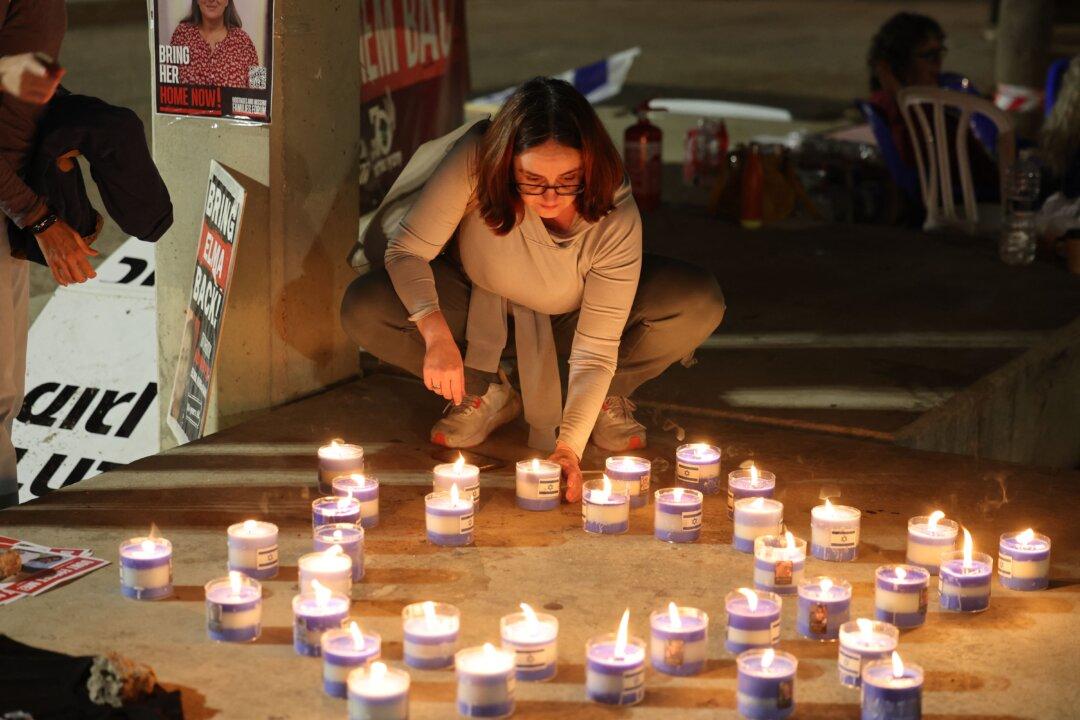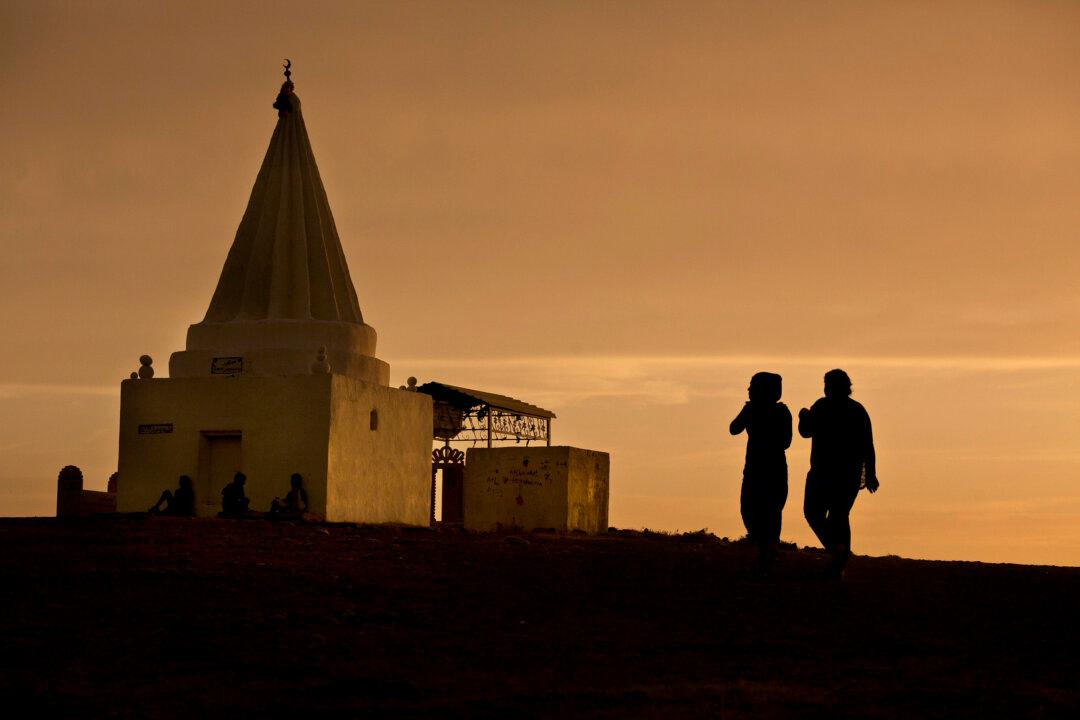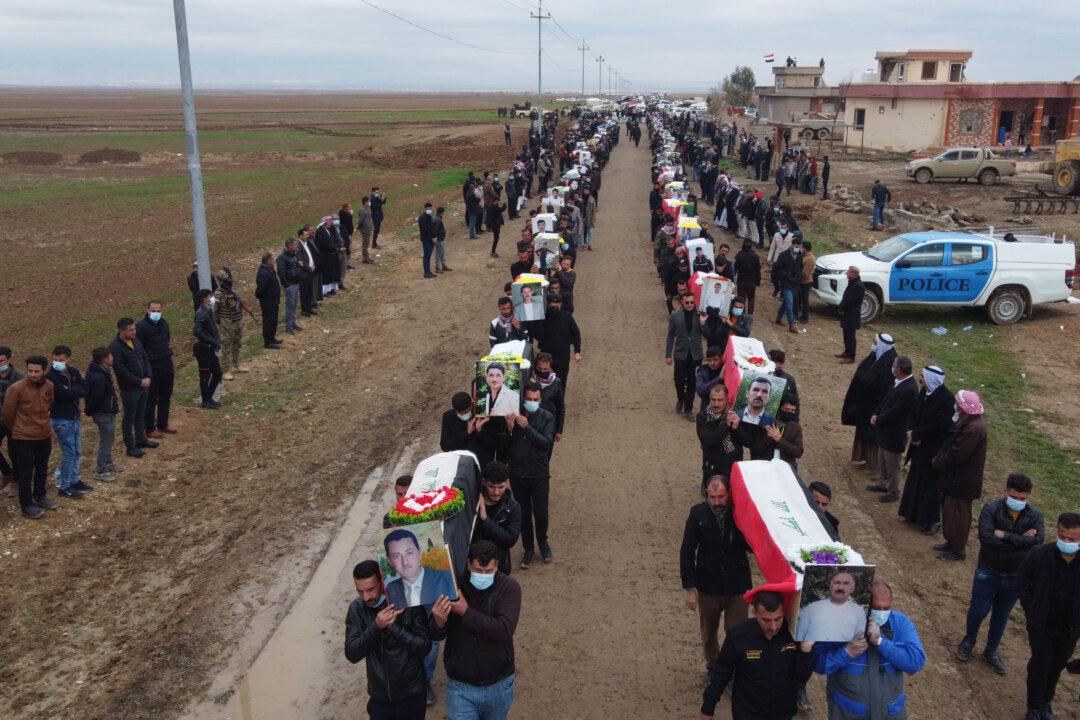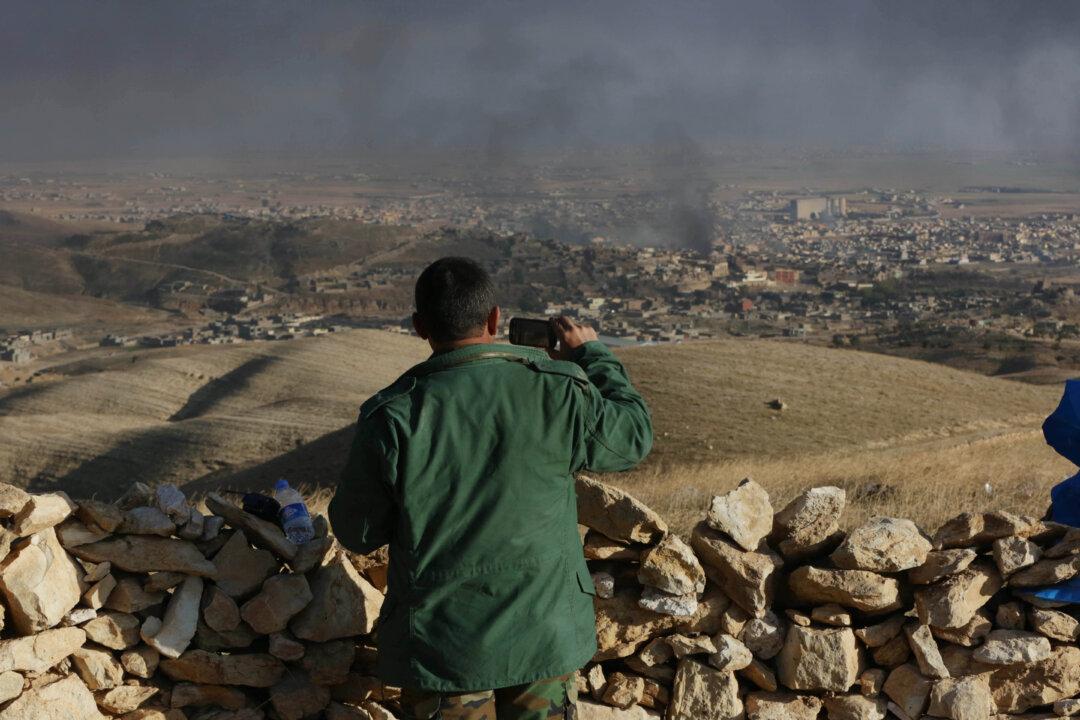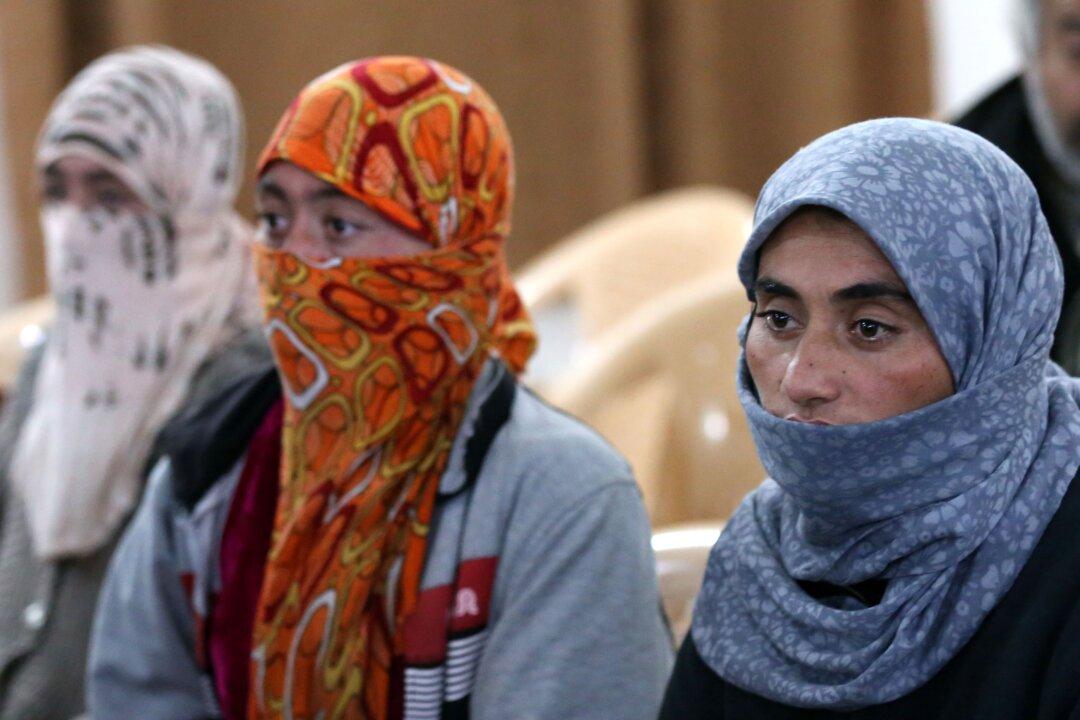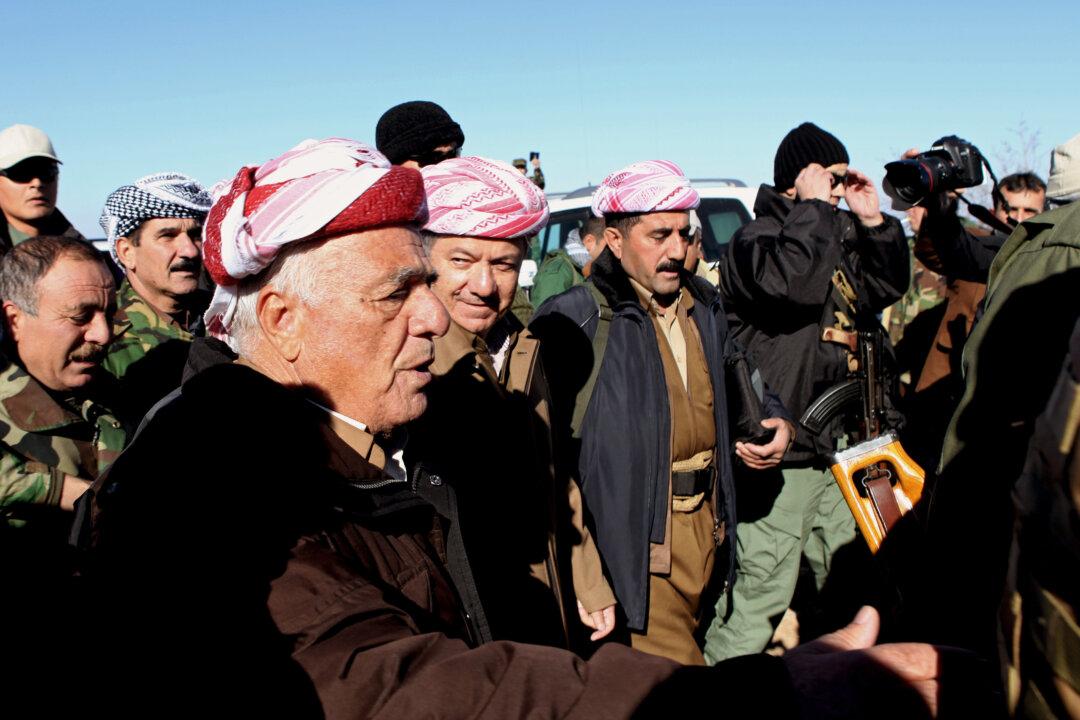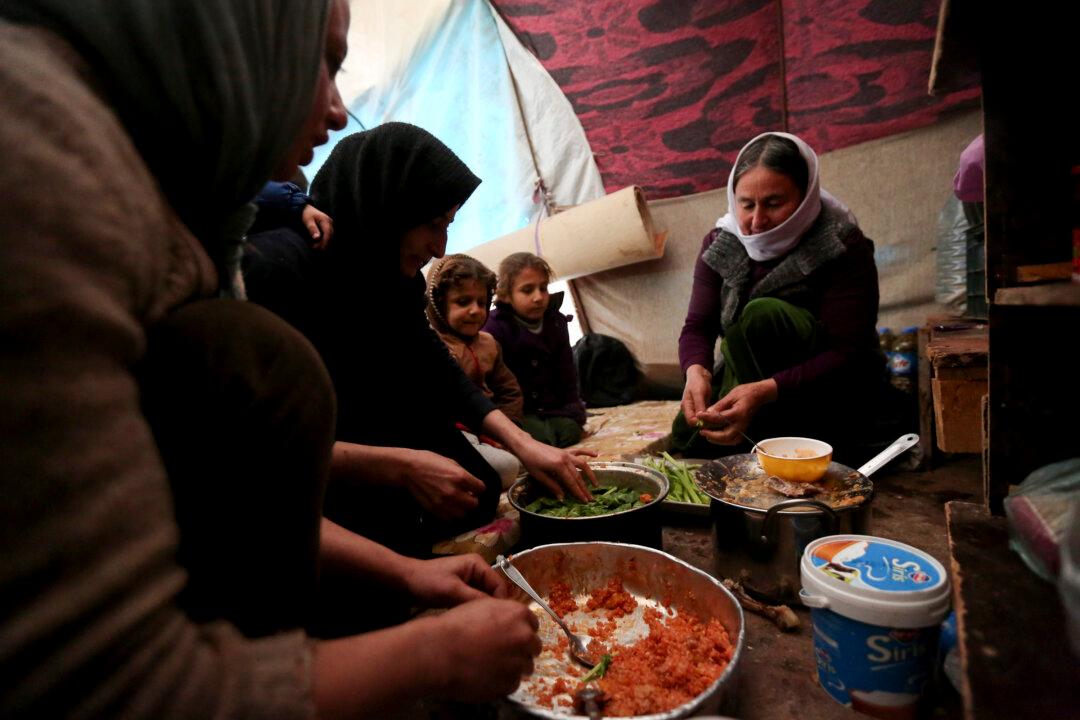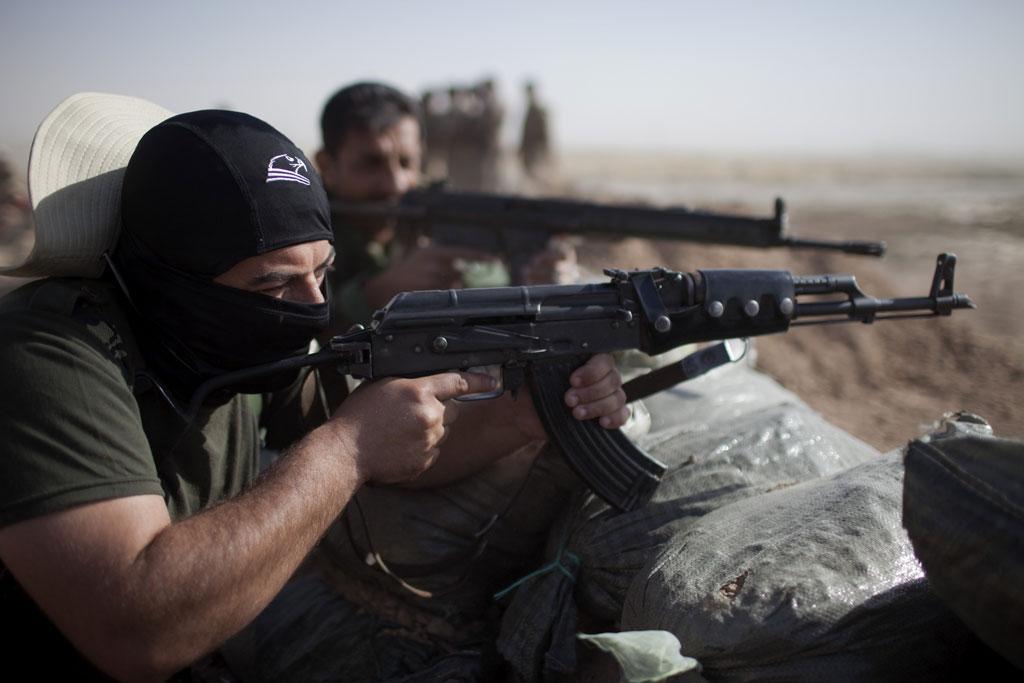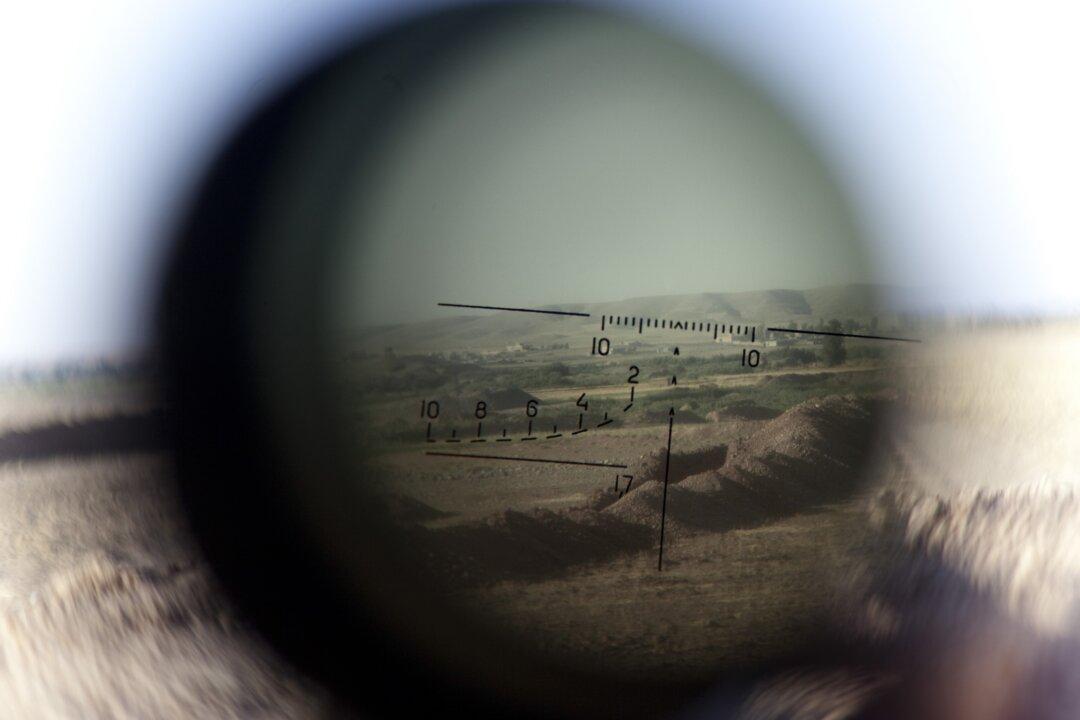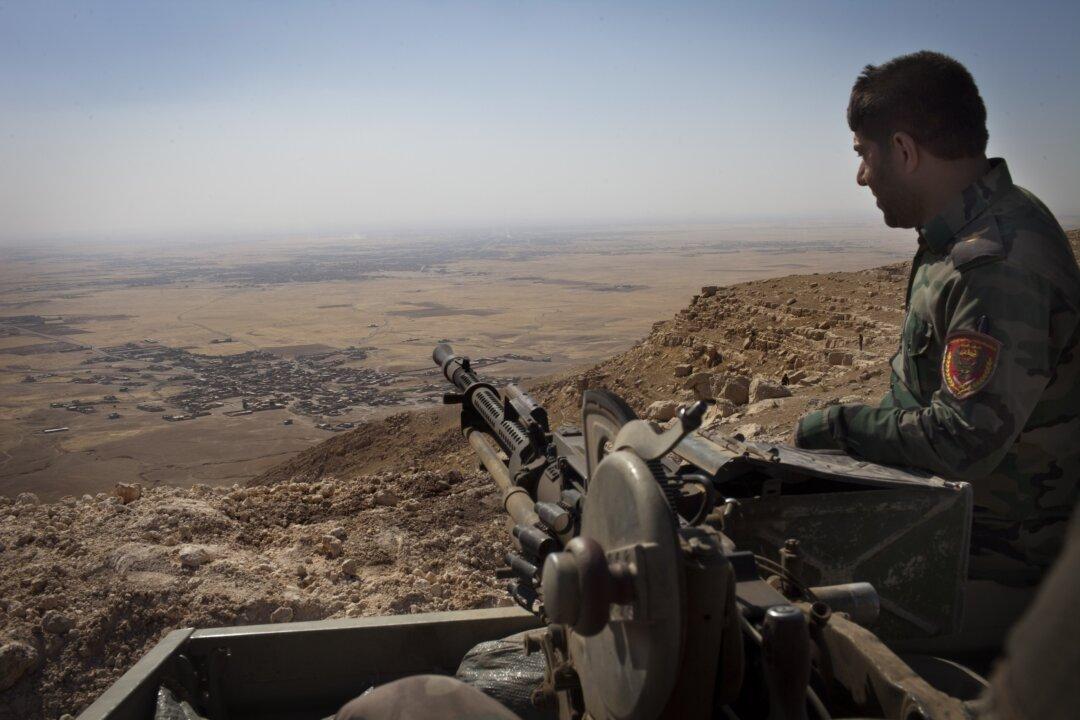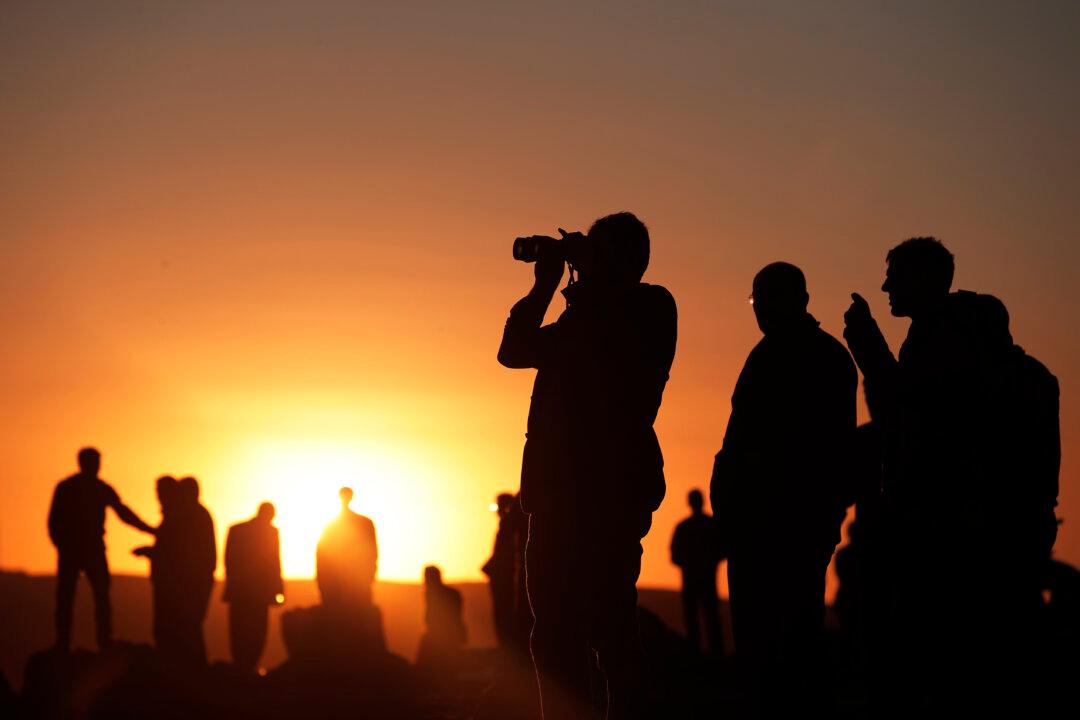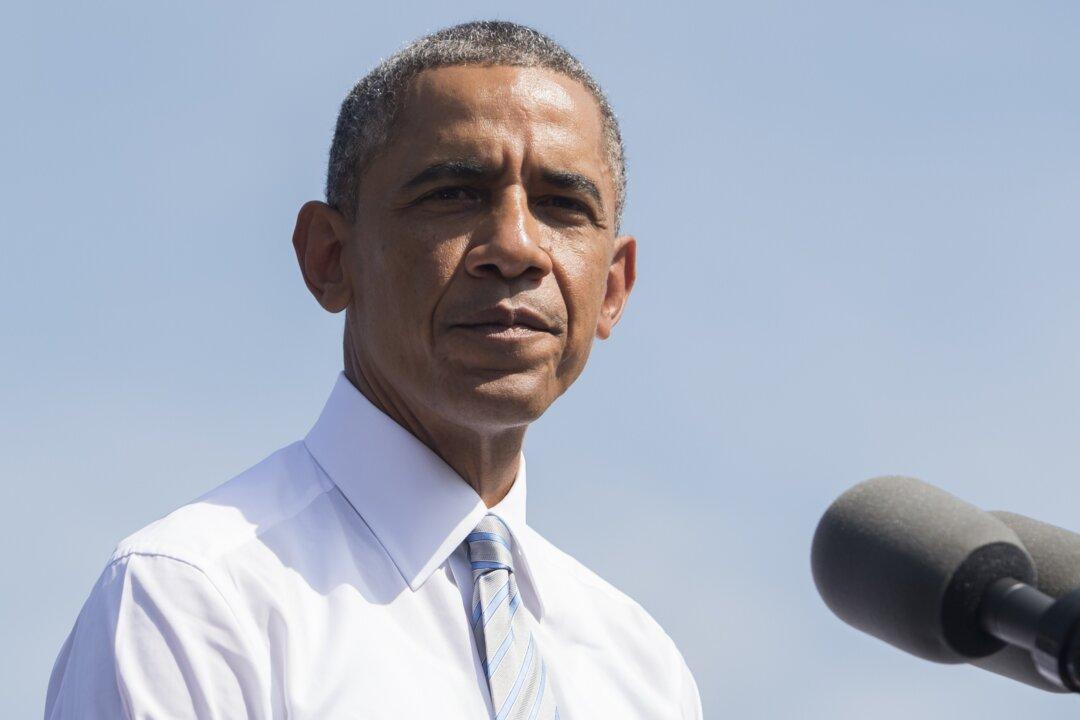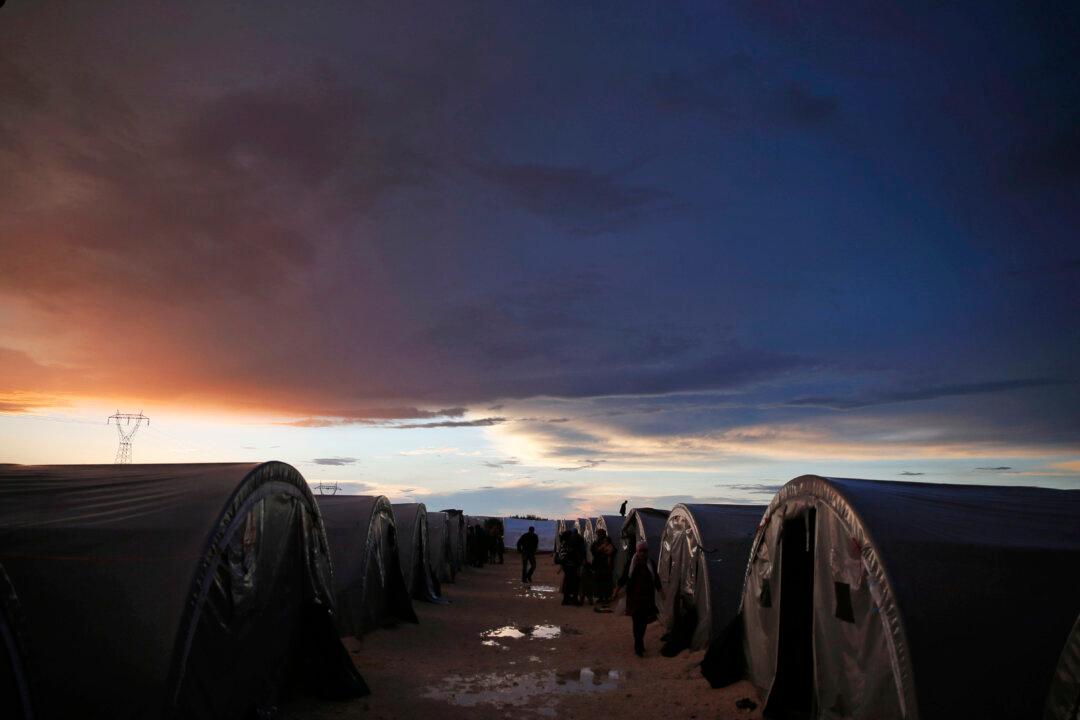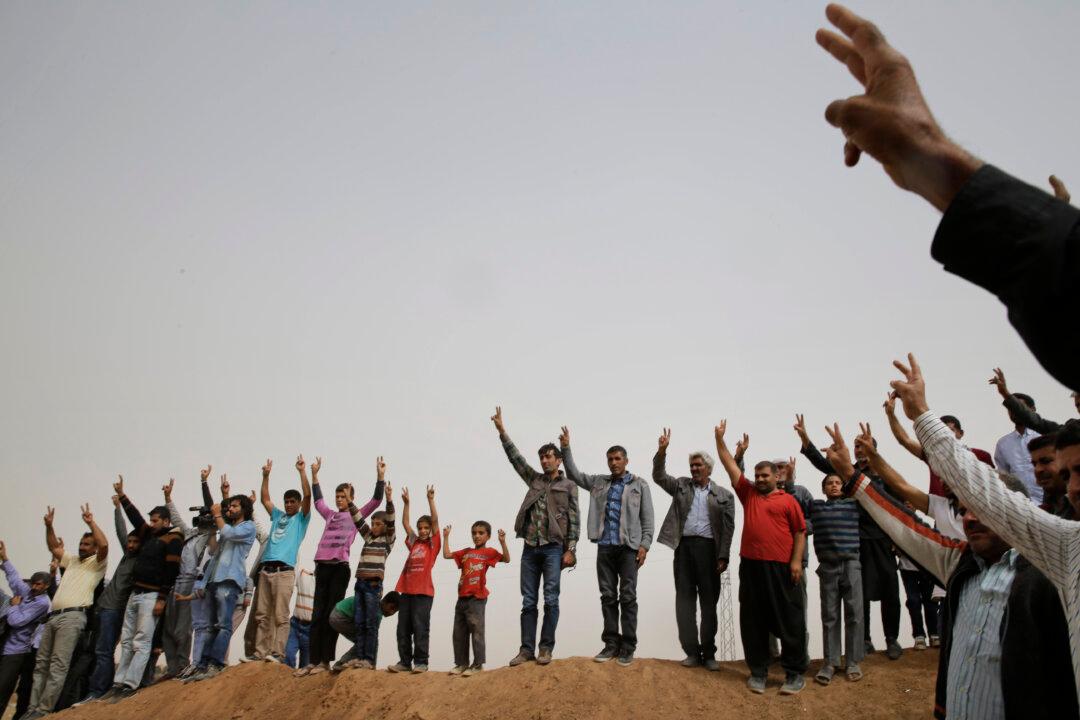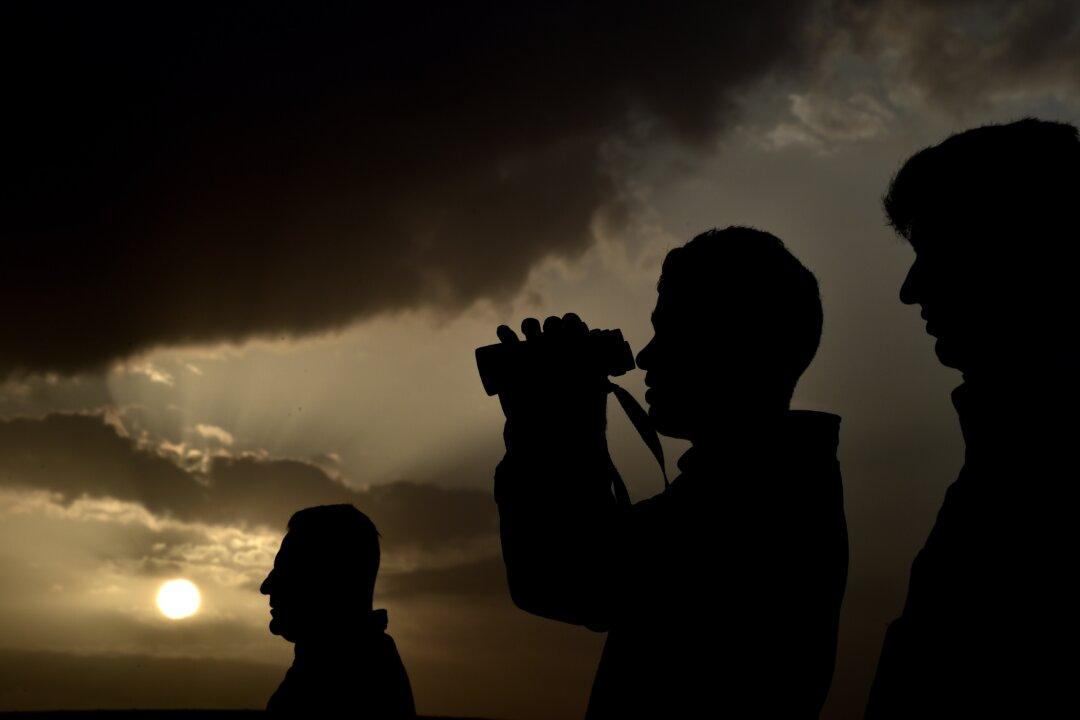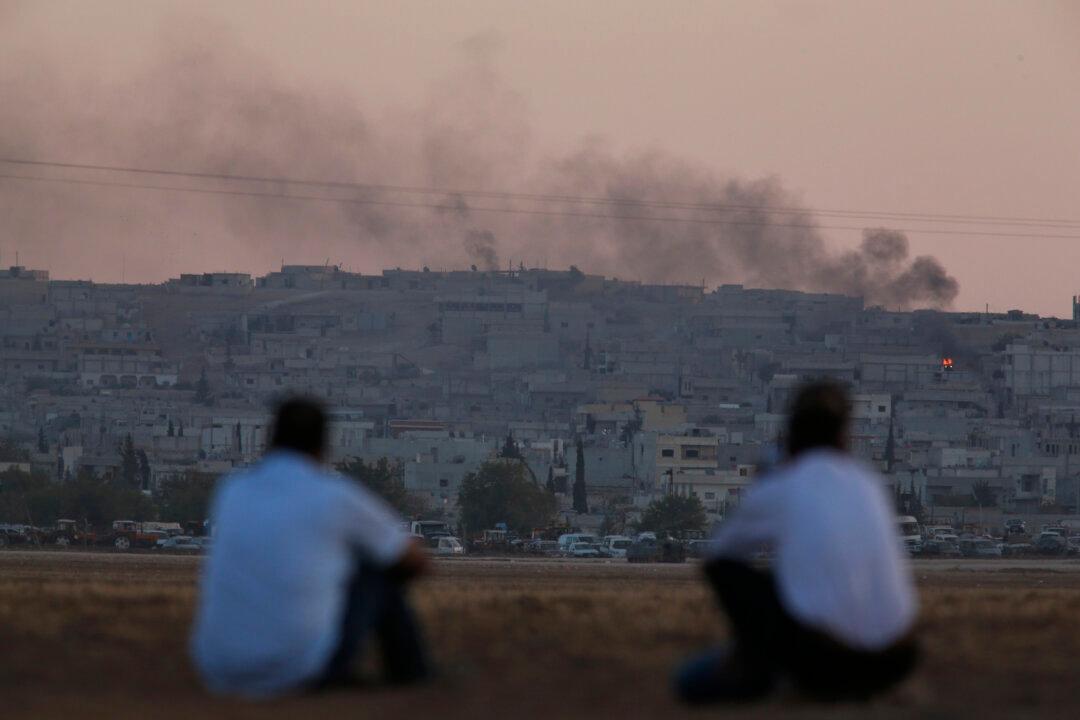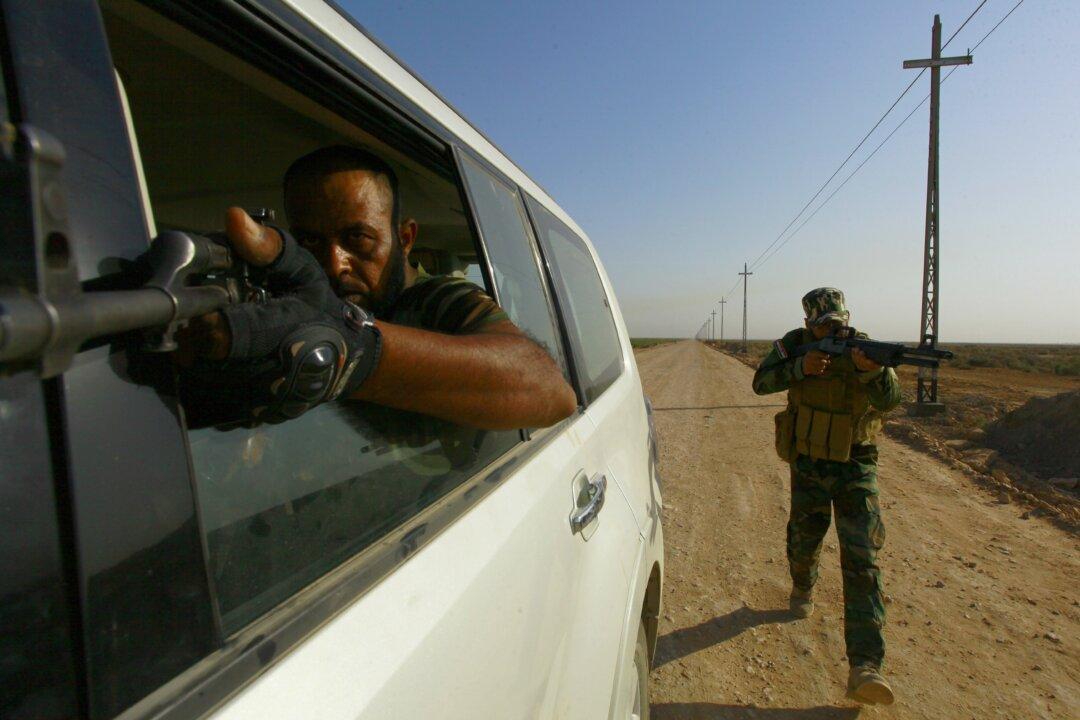Focus
Yazidi
LATEST
A Visit to Ground Zero of ISIS' Genocide in Iraq
This town in northern Iraq was home to more than 88,000 civilians in 2013. Today, there are none left living here.
|
Iraqi Kurds Uncover Mass Graves in Formerly ISIS-Held Sinjar
Kurdish fighters have uncovered two mass graves outside Sinjar, northern Iraq, that was ruled by the Islamic State for more than a year before the extremists were driven out last week.
|
ISIS Profits From Regime of Rape, Slavery
Thousands of women and girls have been brutally raped, beaten, and sold as slaves by the Islamic State.
|
West-Backed Syria Rebels Shaken on Multiple Fronts
During a key battle in the rugged mountains of a northern province earlier this month, U.S.-backed Syrian rebels collapsed before an assault by al-Qaeda fighters. Some surrendered their weapons. Others outright defected to the militants.
|
Iraqi Kurdish Fighters to Head to Syria
Dozens of Iraq’s Kurdish peshmerga fighters will fly to Turkey on Tuesday and from there cross into the Syrian border town of Kobani to help fellow Kurds fight Muslim militants, a spokesman for the Kurdish force said.
|
Iraqi Kurdish Lawmakers Authorized Its Peshmerga Fighters to Help Syrian Kurds
Lawmakers in Iraq’s largely autonomous Kurdish region Wednesday authorized peshmerga forces to go to neighboring Syria and help fellow Kurds combat Islamic State militants in the key border town of Kobani, providing much-needed boots on the ground.
|
Syrian Leader Exploits Coalition War Against ISIS
Syrian President Bashar Assad is taking advantage of the US-led coalition’s war against the Islamic State group to pursue a withering air and ground campaign against more mainstream rebels elsewhere in the country, trying to recapture areas considered more crucial to the survival of his government.
|
Islamic State Militants Seize US Airdropped Weapons Cache Meant for Kurds
Islamic State group fighters seized at least one cache of weapons airdropped by U.S.-led coalition forces that were meant to supply Kurdish militiamen battling the extremist group in a border town, activists said Tuesday.
|
Obama’s Legacy in the Middle East: Passing the Baton in 2017
In a period of about six weeks spanning August and September 2014, President Obama dramatically revamped his Middle East policy to put degrading and destroying the Islamic State (ISIS) at its center.
|
Syrian Kurds Press Hundreds of Young Into Army but Lack Equipment
In its battle for the Syrian town of Kobani, the Islamic State group enjoys a key advantage: a supply of weapons, ammunition and fighters shuttling between Syria and Iraq.
|
Hard-Pressed Between Turkey and ISIL, Kurds Essential to Regional Peace
The Kurds of Syria and Iraq have become a major focal point in the war against the Islamic State group, with Kurdish populations in both countries coming under significant threat by the militants’ lightening advance.
|
US-Led Airstrikes Produce Few Gains
After two months, the U.S.-led aerial campaign in Iraq has hardly dented the core of the Islamic State group’s territory. The extremist fighters have melted into urban areas when needed to elude the threat, and they have even succeeded in taking new territory from an Iraqi army that still buckles in the face of militants.
|
The Traveling Terrorism Fallacy
If you believe the cable-news-o-sphere regarding American extremists fighting with the Islamic State, you might think a plane ticket is all that separates these “homegrown” fighters from executing a terrorist attack on U.S. soil.
|
A Visit to Ground Zero of ISIS' Genocide in Iraq
This town in northern Iraq was home to more than 88,000 civilians in 2013. Today, there are none left living here.
|
Iraqi Kurds Uncover Mass Graves in Formerly ISIS-Held Sinjar
Kurdish fighters have uncovered two mass graves outside Sinjar, northern Iraq, that was ruled by the Islamic State for more than a year before the extremists were driven out last week.
|
ISIS Profits From Regime of Rape, Slavery
Thousands of women and girls have been brutally raped, beaten, and sold as slaves by the Islamic State.
|
West-Backed Syria Rebels Shaken on Multiple Fronts
During a key battle in the rugged mountains of a northern province earlier this month, U.S.-backed Syrian rebels collapsed before an assault by al-Qaeda fighters. Some surrendered their weapons. Others outright defected to the militants.
|
Iraqi Kurdish Fighters to Head to Syria
Dozens of Iraq’s Kurdish peshmerga fighters will fly to Turkey on Tuesday and from there cross into the Syrian border town of Kobani to help fellow Kurds fight Muslim militants, a spokesman for the Kurdish force said.
|
Iraqi Kurdish Lawmakers Authorized Its Peshmerga Fighters to Help Syrian Kurds
Lawmakers in Iraq’s largely autonomous Kurdish region Wednesday authorized peshmerga forces to go to neighboring Syria and help fellow Kurds combat Islamic State militants in the key border town of Kobani, providing much-needed boots on the ground.
|
Syrian Leader Exploits Coalition War Against ISIS
Syrian President Bashar Assad is taking advantage of the US-led coalition’s war against the Islamic State group to pursue a withering air and ground campaign against more mainstream rebels elsewhere in the country, trying to recapture areas considered more crucial to the survival of his government.
|
Islamic State Militants Seize US Airdropped Weapons Cache Meant for Kurds
Islamic State group fighters seized at least one cache of weapons airdropped by U.S.-led coalition forces that were meant to supply Kurdish militiamen battling the extremist group in a border town, activists said Tuesday.
|
Obama’s Legacy in the Middle East: Passing the Baton in 2017
In a period of about six weeks spanning August and September 2014, President Obama dramatically revamped his Middle East policy to put degrading and destroying the Islamic State (ISIS) at its center.
|
Syrian Kurds Press Hundreds of Young Into Army but Lack Equipment
In its battle for the Syrian town of Kobani, the Islamic State group enjoys a key advantage: a supply of weapons, ammunition and fighters shuttling between Syria and Iraq.
|
Hard-Pressed Between Turkey and ISIL, Kurds Essential to Regional Peace
The Kurds of Syria and Iraq have become a major focal point in the war against the Islamic State group, with Kurdish populations in both countries coming under significant threat by the militants’ lightening advance.
|
US-Led Airstrikes Produce Few Gains
After two months, the U.S.-led aerial campaign in Iraq has hardly dented the core of the Islamic State group’s territory. The extremist fighters have melted into urban areas when needed to elude the threat, and they have even succeeded in taking new territory from an Iraqi army that still buckles in the face of militants.
|
The Traveling Terrorism Fallacy
If you believe the cable-news-o-sphere regarding American extremists fighting with the Islamic State, you might think a plane ticket is all that separates these “homegrown” fighters from executing a terrorist attack on U.S. soil.
|

